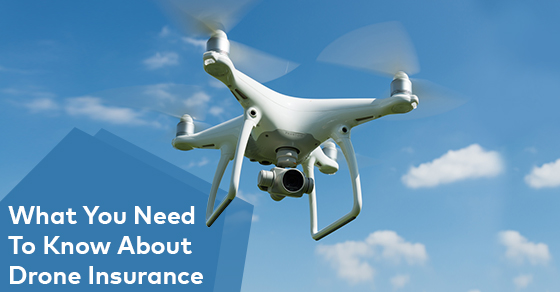
6 Things Videographers Need to Know about Drone Insurance
Drones are now used by thousands of professional and amateur videographers. This technology provides captivating views for miles around a filming site, and ensures that the filming process is built based upon the latest advances in video technology. But one of the challenges videographers face is in insuring their drones against the latest claims and damage threats. It’s important to work with trusted insurance professionals to learn more about drone insurance and its value to your business.
Whether you’re a professional, hobbyist, or enthusiast, we explore the 6 things you need to know about drone insurance in this latest post.
-
It’s Not Covered Under Your Home or Commercial Policy
One of the most common mistakes videographers make when buying a drone is that they believe that drones are automatically covered under their commercial or home insurance policy. As soon as the rotors turn, specific aviation coverage is required. This is why it’s important to discuss insurance with your broker before buying a drone.
-
Commercial Drone Liability Should be Extensive
If you’re using your drone to film in a public area, you could face a number of different liability claims as a result of damage caused by your drone. It’s important that you have a clear understanding of the types of claims you might face as the owner and operator of the drone. For example, you might face property damage claims if your drone falls and breaks a nearby window. You might also face advertising liability claims if your drone impedes on a business’s legal rights and promotes a competitor’s products on their land. These are just two of the many types of liability issues you’re exposed to as the person operating the drone.
-
Working with a Specialist is Essential
Another common mistake that videographers continue to make during the filming process is not working with an insurance company that has a full understanding of drone insurance. The drone should be covered by a watertight policy that mitigates the impact of damage to the system or damage caused by the system to another party. Without this type of watertight policy, you could face extensive claims. The insurance company you select should have experience working with drones to cover their use and protect their clients against drone-use claims. A drone is technically classified as an aircraft which is why specific expertise is required. Your broker should be able to point to past clients who have used their service to arrange drone coverage.
-
All Drone Users Should be Covered
While you might be filming the work yourself from a wirelessly connected device, the operator of the drone should also be covered. This means that if you have a technical specialist on-site, either choosing the camera angles for the drone or operating the drone directly, they should be covered in case they’re found liable for damages. In some cases, legal teams might find that a person caused an accident on-site by operating the drone dangerously. The drone could fail after it was directed through a storm, for example. The person who chose the site and was in charge of analyzing local weather patterns could, in theory, be held responsible for damage caused at this time. Make sure that all individuals who interact with the drone are covered under your policy.
-
Public Liability Insurance Should be Considered
Regardless of how good the operator of the drone is at flying the product, the potential for damage is a risk that all operators must face. One particular issue that can lead to significant costs for the operator of the drone is injury to the general public due to loss of control. There have been numerous reports of drone-related injuries at public events in recent years, and in many cases, those injured have initiated legal proceedings. Make sure that you take public liability insurance into full consideration when reviewing your drone use. If you are operating the drone around many other people, the drone used should be covered by public liability insurance.
-
Waivers Might be Required
In some cases, you might need to sign waivers that allow you to use your drone for filming in public areas. Even some private land use is restricted by the commercial flight authorities. The use of drones are regulated by Transport Canada. A Special Flight Operations Certificate (SFOC) may be required from Transport Canada. Research is necessary before negotiating additional agreements to fly a drone. Going through the waiver process and working with local area experts can help you to protect your rights in the event of a claim.
Our team is here to guide you in ensuring the successful and safe use of drones during your filming process. To learn more, contact us now!
Leave A Comment
The comments are closed.


